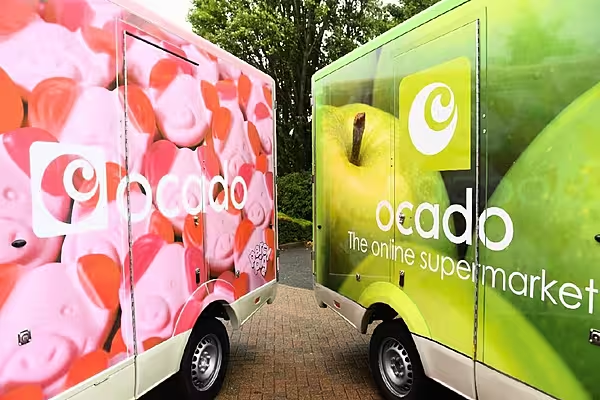Online grocer and technology provider Ocado has posted full-year revenue growth of 32.7%, boosted by a 35.3% increase in revenue in its retail division.
Commenting on its performance, Ocado chief executive Tim Steiner said, The rapid acceleration of many pre-existing trends in business and society has been a feature of the COVID-19 crisis, and the dramatic channel shift in grocery is a clear example of this. The landscape for food retailing is changing, for good."
Here's how leading retail analysts viewed its performance.
Thomas Brereton, GlobalData
“Ocado’s full-year results certainly appear impressive at first glance, with retail revenue rising to £2.2bn and retail EBITDA growing 265.8% (to £148.5m) as shopping for groceries soared in popularity over the course of the COVID-19 pandemic. But when viewed in relation to the wider online grocery market – which grew 87.8% in 2020 – and rival’s results, it is clear Ocado has failed to keep pace with the likes of Tesco, Sainsbury’s and Waitrose over the course of the year.
"This largely stems from its inability to meet the boom in demand the way its supermarket rivals have been able to, i.e. through rapid escalation of in-store picking services for online fulfilment. This problem is confirmed by its 29.2% increase in average basket size, which – although undoubtedly responsible for its meteoric rise in retail EBITDA margin – also masks the reality that the number of active customers fell 14.5% over the period, hindered by the closure of its website and temporarily pausing new customer acquisition.
“This disparity with rivals raises some questions about Ocado’s operating model and broader proposition in its Solutions division; in particular, the ability of its proprietary data-driven warehouses to demonstrate flexibility at times when online grocery demand is not so predictable. Of course, the chaotic market dynamics seen during COVID-19 is a thankfully rare event, but will still give potential partners cause to consider if Ocado’s grandiose vision has the power to match quick changes to consumer preferences.
"Ocado’s home market in the UK is a perfect example, with a host of fulfilment operators (most notably Deliveroo and Uber Eats) now offering groceries home-delivered in less than an hour, and giving credit to the notion that well-oiled, flexible, gig economy-based enterprises can react much quicker than automated, rigid supply systems."
James Anstead, Barclays
"Ocado’s FY20 EBITDA of £73m was no great surprise given the recent guidance of ‘at least £70m’, but the breakdown was more favourable than we had expected for Retail and International Solutions (and consequently less favourable for UK Solutions and ‘Other’).
"Of course, the future is key for Ocado and therefore the new forward-looking guidance is perhaps of the most interest. Ocado has highlighted £30m of additional investment (i.e. operating expenses) in ‘technology and platform’ – although the high starting point of Retail EBITDA from FY20 might offset some of the additional opex. FYI – Ocado’s website lists FY21 consensus EBITDA as £83m.
"Overall there are no great surprises in this statement, but – particularly against the backdrop of the strong run the shares have seen into these results – we do not really see the statement as incrementally positive."
Clive Black, Shore Capital
"Ocado is a great British technology triumph, having been granted the trust and capital of the markets to plough a long and loss-making furrow that is seemingly right for its time. The never-ending potential of the business is quite remarkable, reflected in the earnings ‘can’ being further kicked down the road with this set of results, augmented now by legal costs.
"Hence, where Ocado differs from most booming consumer-tech companies, is its lack of conversion of technological genius into tangibly leading market positions and the operating and free cash flows that follow.
"The group has enjoyed the ride that consumer-tech has understandably experienced through the pandemic, in terms of the acceleration of pre-existing trends and so the arrival much greater digitisation. Whilst so, it has lost market share in its core market to store picking models, notable market share, and around the world alternative models are now becoming engrained, which raises questions rarely asked as to why so many grocery retailers do not use Ocado solutions but more significantly the greater commercial challenge that the pandemic brings to the Group as the search of alternative remote solutions by those supermarkets are also crystalised."
Russ Mould, AJ Bell
“It’s official – as far as Ocado is concerned, the shift in grocery shopping habits brought about by the pandemic is permanent. This tallies with what many people have said about the impact of COVID on retail and other sectors, it hasn’t changed the tape so much as hit fast forward.
“While coronavirus has clearly been a catalyst for doing the weekly shop over the web, many of these new customers seem likely to stick with it for the convenience factor. And it’s not just happening in the UK, this is a worldwide phenomenon. These changes are great news for Ocado, which has positioned itself right at the centre of the transition in the supermarket sector.
“Ocado still needs to deliver on profit, but it is getting closer, with losses narrowing significantly. It has faced teething problems, sometimes struggling to keep up with demand but for the most part it has coped with the rapid shifts in customer purchasing patterns over the last 12 months. While its joint venture with Marks & Spencer is the most visible part of the group, the future for Ocado is its Ocado Smart Platform, licensing systems to global grocery firms to power their fulfilment centres – essentially big warehouses with robot pickers.
“The other fly in the ointment is the legal action being pursued by Norway’s Autostore over robot technology patents. Ocado is, as you would expect, mounting a very robust defence with the lawyers likely to do quite nicely whatever the ultimate outcome.”
© 2021 European Supermarket Magazine – your source for the latest retail news. Article by Stephen Wynne-Jones. Click subscribe to sign up to ESM: The European Supermarket Magazine














